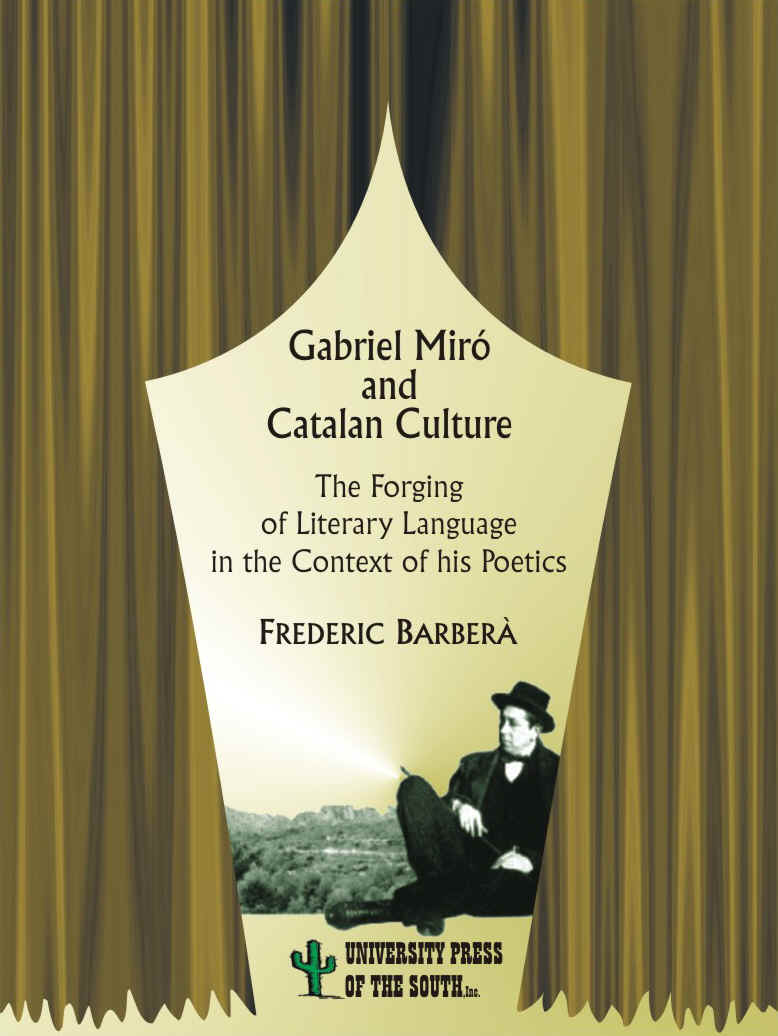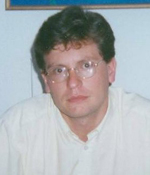Miró was admired by
several members of the Generación del 27,
‘discovered’ and enthusiastically
promoted by Valéry Larbaud, translated into French and into English in his lifetime, and
commented upon by Julio Cortázar as an innovator in early twentieth century Western
narrative.
Frederic Barberŕ decided to study the forging of
Gabriel Miró’s literary language in the
context of his poetics for two main reasons. On the one hand, he wanted to explain how
Miró, a writer born in an area where Castilian was virtually unspoken, had
succeeded
in forging such a rich literary language in
Spanish. On the other hand, he found it necessary to shed light on the way in which the
complexity and beauty of that literary language, unanimously acknowledged by Miró’s
critics, was tightly linked to an ambitious poetics, ultimately responsible for one of the
most modern narratives in Spanish in the early twentieth century.
The author examines
both the surface and the hidden strands of Valencian in Miró’s work, from the
meetings with the rural population in his early excursions to Guadalest and Parcent, to
the integration of their culture and language into his own identity in
Ańos y leguas, via his experience of the Catalan
renaissance in Barcelona. He is also able to look at Miró’s language in his letters,
where he finds both Catalan words and syntax. But the key importance of this work is that
it does not simply assemble these findings but suggests meanings and values for
Miró’s linguistic choices, and integrates these with the study of his poetics.
Frederic Barberŕ has asked new questions and offered new readings in a genuinely original
step forward in Mironian studies.


